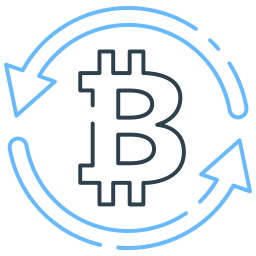This article will explore Solana’s scalability and its impact on the future of blockchain technology. With its unique architecture and cutting-edge features, Solana has emerged as a leader in the blockchain space, offering unparalleled scalability and performance. In this article, we’ll delve into the details of Solana’s scalability and how it’s changing the game for blockchain adoption.
One of the key factors that sets Solana apart from other blockchain platforms is its use of a novel consensus algorithm called the Proof of Stake (PoS) with a twist. Instead of using a traditional PoS protocol, Solana employs a consensus mechanism called “Proof of History” (PoH), which allows for more efficient and secure transaction validation.
Another significant advantage of Solana’s architecture is its ability to scale horizontally. Unlike traditional blockchain platforms that rely on a fixed number of nodes, Solana’s node count can be dynamically adjusted based on the network’s load. This allows for much faster transaction processing times and greater overall scalability.
Solana’s scalability is also facilitated by its use of a novel consensus algorithm called “Sealevels.” Sealevels is a hierarchical consensus mechanism that uses a combination of PoS and Byzantine Fault Tolerance (BFT) to ensure the security and integrity of transactions on the network. This allows for much faster transaction validation times and greater overall scalability.
Another key factor in Solana’s scalability is its use of a novel data storage mechanism called “proof-of-stake with proof-of-work.” This mechanism combines the benefits of both PoS and PoW to create a more efficient and secure data storage solution. By allowing nodes on the network to stake their own coins as collateral, Solana creates a highly incentivized system for node operators to participate in the network.
Solana’s scalability also has significant implications for the future of blockchain adoption. With its unparalleled performance and efficiency, Solana is well-positioned to support the widespread adoption of decentralized applications (dApps) and other blockchain-based services. In fact, many experts predict that Solana will play a major role in the next wave of blockchain adoption, with some estimates suggesting that it could reach mainstream acceptance within the next 2-3 years.
However, Solana’s scalability is not without its challenges. One of the main hurdles facing the platform is the need for more nodes to be added to the network. While this will ultimately help improve the platform’s overall scalability, it also creates a number of logistical challenges. For example, adding new nodes to the network requires significant resources and infrastructure, which can be a barrier to entry for some potential users.
Another challenge facing Solana is the need to address issues related to smart contract security. While Solana’s consensus mechanism is highly secure, it also creates a number of opportunities for malicious actors to exploit vulnerabilities in smart contracts. To address this issue, Solana has implemented a range of measures designed to improve smart contract security, including automated testing and vulnerability scanning.
Despite these challenges, Solana remains a leader in the blockchain space, offering unparalleled scalability and performance. Its unique architecture and cutting-edge features make it an attractive option for developers and users looking to build and deploy decentralized applications on a scalable blockchain platform.
In conclusion, Solana’s scalability is one of its greatest strengths, offering unparalleled performance and efficiency. With its novel consensus algorithm, horizontal scaling capabilities, and data storage mechanism, Solana is well-positioned to support the widespread adoption of blockchain-based services. While there are challenges facing the platform, these can be addressed through continued innovation and development.
Tag 1: #SolanaBlockchain
Tag 2: #BlockchainScalability
Tag 3: #ProofOfStake
Tag 4: #DecentralizedApplications
Tag 5: #FutureOfBlockchain



